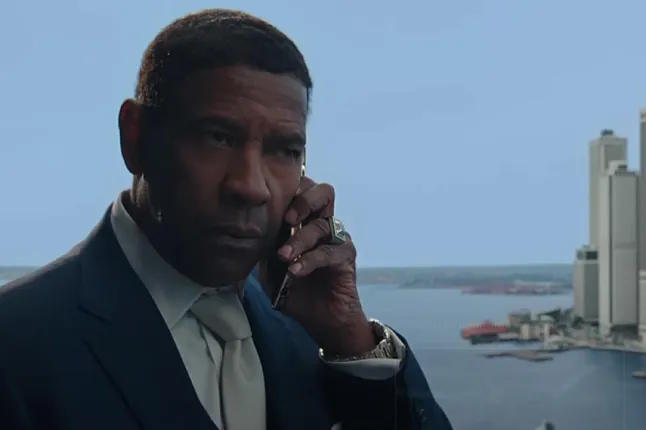Spike Lee, in certain cases, is scary. This is one of them. There is a facet of his filmography that provokes a certain fear. And it has nothing to do with his most identifiable vindicative, militant, and confrontation-loving register, which is always appreciated, but with the casual way in which he deconstructs classics that we are told are untouchable in schools. In Chi-Raq, he adapted Lysistrata by Aristophanes and felt satisfied with his particular interpretation of the women's sex strike. And in Pass Over, he offered his own version of Samuel Beckett's Waiting for Godot on the streets of modern Chicago. In both cases, he came out content and very successful. In this same vein, he takes on High and Low by Akira Kurosawa and turns one of the most peculiar and murky thrillers in the history of cinema into a fun story of kidnappings, lost money, music (lots of music), and a superb Denzel Washington, in what is his fifth collaboration with the director, who raps and is impossible not to fall in love with.
To set the scene and refresh our memory, we are faced with the dilemma of a wealthy businessman whose son is allegedly kidnapped by a gang of thugs. Or so it seems at first. Our hero, who in the original film was the gigantic Toshiro Mifune and in this one is the no less monumental Washington, hesitates: pay the ransom, save the victim, and go bankrupt, or not. In other words, do not pay and let the boy die (in truth, there has been a misunderstanding. We won't say which), but keep the money needed to settle one of those debts that, if not paid, leave one without a life. The biggest difference between the two, besides almost everything (the two-act structure is kept, albeit distantly), is the setting. Now it's about a major music producer (of black music, of course), and it is around this art, which is also business and even a political manifesto, that everything revolves.
Highest 2 Lowest moves across the screen with a catchy, playful, teasing, and always iconoclastic rhythm that, let's admit it, is not easy to adapt to at first. Prejudices are many (always), and until one realizes all the things missed because of those prejudices, it's hard to get into it. But once the barrier of one's own stupidity is overcome, everything flows. And that's when Lee's ideology emerges full and brilliant, when the vindication of authentic black music challenges the more commercial rap, when the hero understands his role as a service to the community, and when New York is once again described with as much tenderness as cruelty. And that's when Lee allows, from time to time, the actors to look at the camera for no reason. Or for those same actors to hug twice in the same sequence simply by offering the same action from two different angles. Or for Denzel Washington himself to rap like no one did before. It's Lee.
The result is one of those movies that enjoy their mistakes because they are aware of them and because they become strong in them; a movie that, in truth, is a joint. It's Lee. It's free. It's fun. And with a Denzel Washington who never ends.
Director: Spike Lee. Cast: Denzel Washington, Jeffrey Wright, Ilfenesh Hadera, ASAP Rocky. Duration: 133 minutes. Nationality: United States.
